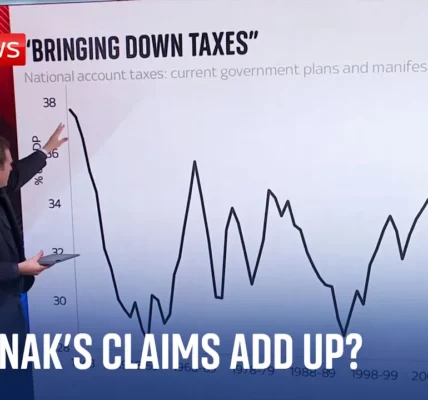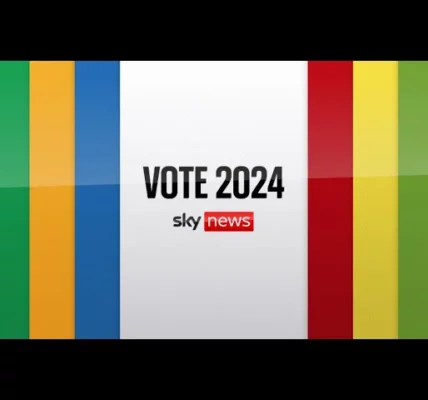Political Turmoil as Biden Meets Netanyahu and Harris Prepares for Presidential Run

In a pivotal moment for American politics, President Biden’s meeting with Israeli Prime Minister Benjamin Netanyahu coincides with Kamala Harris’s rising profile as she gears up for the presidency. This article delves into the complexities of their interactions, the implications for the Democratic Party, and the ongoing humanitarian crisis in Gaza.
Introduction
The political landscape in the United States is undergoing significant changes as President Joe Biden and Israeli Prime Minister Benjamin Netanyahu meet amidst ongoing tensions in the Middle East. This meeting comes at a time when Vice President Kamala Harris is emerging as a formidable contender for the Democratic presidential nomination. The implications of these developments are profound, as they reflect not only the dynamics of U.S.-Israel relations but also the shifting sentiments within the American electorate regarding foreign policy and domestic governance.
The Biden-Netanyahu Meeting
The recent meeting between President Biden and Prime Minister Netanyahu marks a critical juncture in U.S.-Israel relations. This section explores the complexities of their relationship, the historical context, and the immediate outcomes of their discussions.
Historical Context of Biden-Netanyahu Relations
The relationship between President Biden and Prime Minister Netanyahu is characterized by a long history, marked by both camaraderie and conflict. Biden’s support for Israel has been unwavering throughout his political career, yet recent events have strained this relationship.
- Longstanding Support: Biden’s commitment to Israel dates back decades, often emphasizing the strategic partnership between the two nations.
- Challenges: Recent criticisms from within the Democratic Party regarding Israel’s military actions have forced Biden to navigate a complex political landscape.
The Meeting’s Dynamics
During their meeting, Biden appeared to grapple with the reality of Netanyahu’s approach to the ongoing war in Gaza. Analysts noted a palpable tension as Biden expressed his desire for a ceasefire while Netanyahu remained focused on military objectives.
- Concerns Over Humanitarian Crisis: Biden highlighted the need for addressing the humanitarian situation in Gaza.
- Political Pressure: Netanyahu faces significant pressure domestically, complicating his response to Biden’s calls for peace.
Kamala Harris: The Rising Star
As Biden prepares to step aside, Vice President Kamala Harris has positioned herself as the leading candidate for the Democratic nomination. This section examines her campaign strategy and the challenges she faces.
Campaign Strategy and Public Perception
Harris’s campaign has gained momentum, particularly among younger voters. Her use of social media and engagement with contemporary issues has resonated with a demographic that is often disengaged from traditional politics.
- Social Media Engagement: Harris’s team has effectively harnessed platforms like TikTok to reach younger audiences.
- Public Endorsements: High-profile endorsements from celebrities and political figures have bolstered her campaign.
Challenges Ahead
Despite her rising popularity, Harris faces significant challenges in solidifying her position as the Democratic nominee.
- Overcoming Skepticism: Many voters remain cautious about her ability to lead effectively.
- Mobilizing Young Voters: Engaging younger voters to translate social media support into actual votes will be critical.
The Ongoing Conflict in Gaza
The humanitarian crisis in Gaza continues to be a focal point of debate within the U.S. political landscape. This section explores the implications of the conflict for U.S. foreign policy and domestic politics.
Humanitarian Impacts
The ongoing military actions in Gaza have resulted in significant civilian casualties, prompting widespread protests across the United States. The humanitarian implications are dire, with calls for a ceasefire growing louder.
- Casualties: Reports indicate that over 39,000 Palestinians have died as a result of the conflict.
- Protests: Activism against U.S. support for Israel has surged, particularly among younger demographics.
U.S. Policy and Public Opinion
The U.S. government’s stance on the Israel-Palestine conflict is increasingly scrutinized, with many Americans calling for a reevaluation of foreign policy approaches. The divide within the Democratic Party regarding support for Israel is becoming more pronounced.
- Shifting Views: A growing number of Democrats are advocating for a more balanced approach to the Israeli-Palestinian conflict.
- Political Ramifications: The internal divisions could impact the Democratic Party’s chances in the upcoming elections.
Conclusion
As the political landscape in the United States shifts, the interplay between Biden’s administration, Netanyahu’s leadership, and Harris’s campaign will shape the future of American politics. The ongoing humanitarian crisis in Gaza adds urgency to these discussions, highlighting the need for thoughtful and compassionate governance. The upcoming elections will be critical in determining how these issues are addressed moving forward.
Stay informed on the latest developments in U.S. politics and the global landscape. For more insights, check out our related articles on U.S.-Israel Relations and The Role of Young Voters in Elections.
“`




